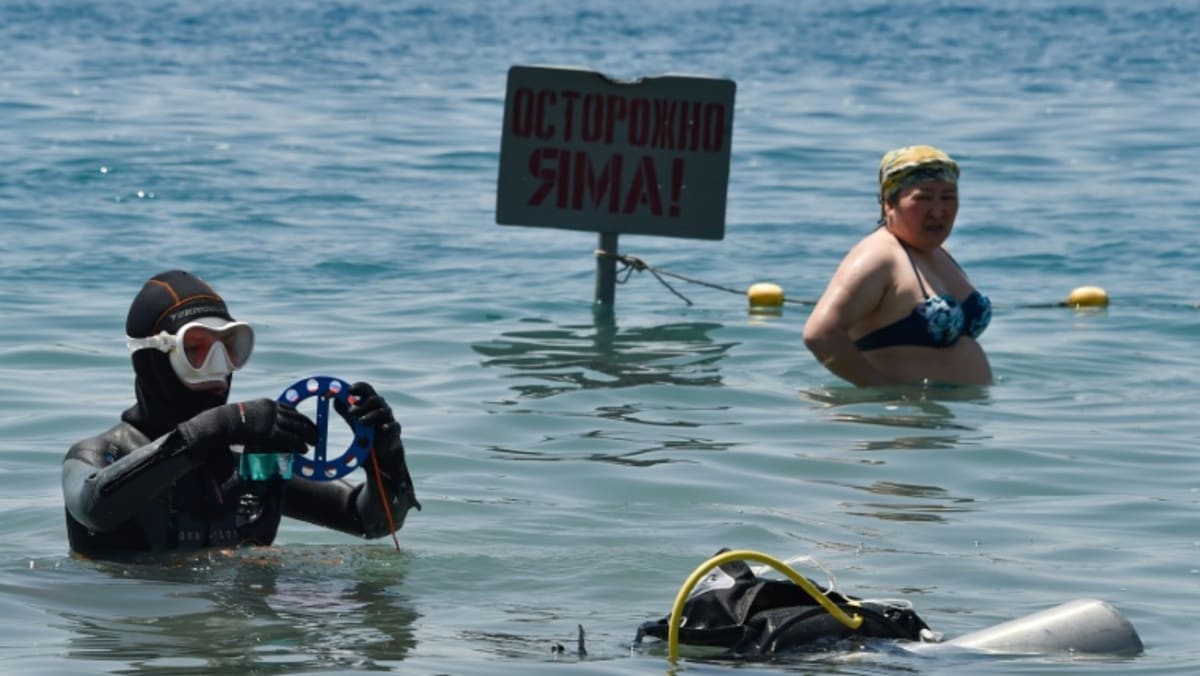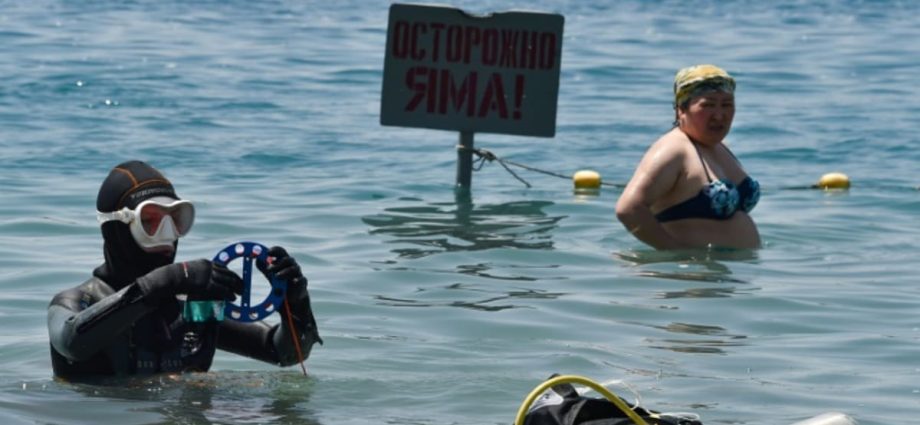
ISSYK KUL LAKE: On the shores of Lake Issyk Kul in mountainous Kyrgyzstan, a group of divers show off their haul for the day – a boat engine, car tyres, bottles, clothes and plastic items.
“We would love to dive and not find any waste,” said Anvar Shamsutdinov, the moustachioed 59-year-old leader of a dozen-strong team of volunteer scuba enthusiasts.
“The beach looks clean but people don’t realise what’s underwater,” he said, as tourists stopped to look.
Surrounded by snowy Central Asian peaks over 4,000m tall, Issy Kul is the second-largest high mountain lake in the world.
The year’s brief but intense summer high season has just got underway in this picturesque region of the former Soviet republic, where the nearest seaside is thousands of kilometres away.
But the flow of visitors and the rubbish they leave behind are endangering this vast lake known as the “pearl of Kyrgyzstan” – whose pristine waters are highly vulnerable to pollution.
The lake area is a UNESCO heritage site, a home for wolves and eagles, and a wintering ground for tens of thousands of migrating waterbirds.
“In 2014, we were doing some underwater orientation and we realised the situation underwater was terrible,” Shamsutdinov said.
“So we decided to clean up the lake,” said the diver, who estimates he has collected 20 tonnes of waste since creating his association “Clean Issyk Kul”.

